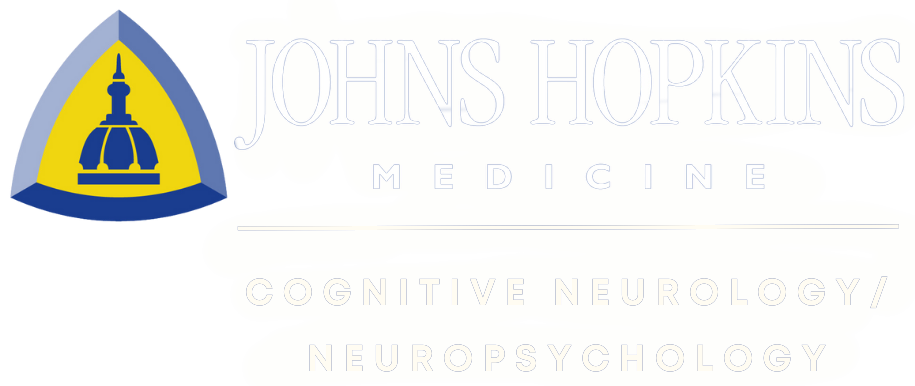The demands placed on attention wax and wane throughout the course of every day. Personal autonomy, in part, depends on the ability to adjust one’s attention in accordance with task demands. For example, driving down a familiar route on a typical day is likely not attentionally demanding, but if one encounters an accident along this route and must take a detour then attention will have to be upregulated. Cognitive control can be defined as the set of processes that allows one to overcome habitual responses, ignore distractors, engage in multistep goal-directed behavior, contend with competing goals, and make context-appropriate responses. Understanding how individuals differ in their capacity to adjust cognitive control, sometimes called meta-control, can help elucidate the atypical characteristics in cognitive control associated with many neurological disorders.
The Individual Differences of Adaptive Control Lab (IDAC Lab) is focused on charting individual differences in the dynamics of cognitive control through the development and application of new methods. Researchers employ a neurocognitive psychometrics approach to understanding how individuals differ in the way they adjust cognitive control. The IDAC Lab uses computational modeling, physiological metrics, and the analysis of behavioral tasks to study control adjustments in neurotypicals and individuals with neurodevelopmental disorders.
The IDAC Lab is part of the Division of Cognitive Neurology/Neuropsychology and the division’s efforts to improve mind and brain functions, particularly those associated with executive disorders.
Current Projects
Individual Differences in Cognitive Control
Cognitive control allows us to accomplish goals in daily life. Individuals differ in their capacity for cognitive control, and understanding these differences may help us better understand the impairments of cognitive control associated with many psychiatric and neurological conditions. Researchers studying individual differences in cognitive control struggle with the fact that many canonical paradigms of cognitive control described in the experimental literature have poor psychometric properties—thus hindering their ability to be used to investigate inter-subject variation in control. Additionally, the majority of individual differences research focused on cognitive control ignores how individuals differ in adjustments of cognitive control, what is sometimes called meta-control, and in situations where control involves high levels of task nesting and/or temporal extension. We are currently investigating cognitive control through four avenues:
- Developing new means of assessing cognitive control;
- Examining the structure of individual differences in cognitive control via latent variable modeling;
- Exploring interindividual variability in meta-control; and
- Determining how meta-control differs in adults with neurodevelopmental disorders from neurotypicals.
Hyperfocus
In recent years, researchers have become interested in anecdotal reports of individuals with attentional deficits experiencing periods of extreme focused attention marked by a distorted perception of time and a lack of peripheral awareness. This proposed state is known as hyperfocus, and there is evidence suggesting that attention deficit hyperactivity disorder, autism, and schizotypy are associated with the propensity to experience this state. We are currently attempting to determine the validity of hyperfocus through correlational research, the development of performance-based measures of hyperfocus, and examination of its electroencephalographic characteristics.
Social Dynamics in Autism
Humans are considered an extremely social species, and success in human life often depends on one’s ability to excel in an ever-changing social environment. The assessment of social functioning is challenging for a number of reasons, primarily because social difficulties are essentially maladaptive patterns of behavioral reactions to other individuals. Social functioning occurs in time, which means it is inherently dynamic. Most assessments of social functioning do not record the actual unfolding of these dynamics and likely miss critical information regarding the nature of one’s social troubles. Additionally, the nuances of human interaction can be hard to capture with self-report-based measures, which are not even an option when investigating certain populations and patterns of social engagement can be highly idiosyncratic. To understand how adults with autism and other neurodevelopmental disorders interact with each other and neurotypical instructors, we employ video recording and biometrics to assess the dynamics of their social behaviors. Insights gained through these analyses potentially could guide both general and personalized behavioral interventions.
People
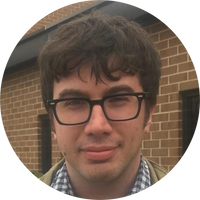
Derek Smith, Ph.D.
Research Associate
IDAC Principal Investigator
Curriculum Vitae
Derek has been working as a research associate in the Department of Neurology’s Division of Cognitive Neurology/Neuropsychology since fall 2021. He earned his Ph.D. from Georgia Tech in 2019 with a specialization in cognition and brain sciences. At Georgia Tech, Derek worked at the Center for Advanced Brain Imaging, studying the neural substrates of cognitive control using functional magnetic resonance imaging (fMRI). Derek conducted his post-doctoral research from 2019 to 2021 at Northwestern University, where he employed fMRI to examine functional connectivity between brain regions. He has a longstanding interest in the mechanisms responsible for adjustments in cognitive control and the neural substrates of these mechanisms. Additionally, Derek is interested in the application of psychometric methods to the study of individual differences in cognitive control.

Clifford Hauenstein, Ph.D.
Research Fellow
Curriculum Vitae
Clifford was appointed to the lab as a postdoctoral research fellow in November 2022. He has completed a B.A. in biological sciences from the University of Southern California and obtained an M.A. and credential in school psychology from Chico State University. During his training as a school psychologist, Clifford gained an interest in improving procedures for measuring intelligence and ability, particularly in identifying inter- and intra-individual variability in cognitive processes and strategies. Subsequently, he obtained his Ph.D. from Georgia Tech in quantitative psychology with an emphasis in psychometrics and item response theory (IRT) modeling. Since his appointment to the lab, Clifford continues to pursue methodological and applied work measuring individual differences in the dynamics of cognitive processing. He has presented his research at conferences for the American Psychological Association, Psychometric Society, National Council on Measurement and Education, and National Association of School Psychologists, and he has been active publishing in both research journals and textbooks.
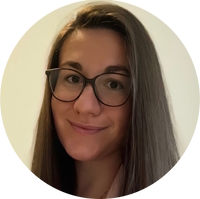
Amanda Kessler, M.A.
Senior Research Assistant
Amanda has been working with the lab since 2021. She received her B.S. in psychology and neuroscience at the University of North Carolina at Chapel Hill and continued her education at New York University, where she obtained her M.A. in clinical psychology. Throughout her master’s program, Amanda interned with NYU Langone Medical Center as well as Columbia Teachers College. She has presented her research at the ABAI Autism Conference and the 2023 Annual Meeting of the Cognitive Neuroscience Society, and she has led a workshop for the Learning Disabilities Association of New Jersey. In fall 2023, Amanda will begin the PsyD program at Yeshiva University in school-clinical child psychology. Her main research and clinical interests focus on investigating the comorbidity of mood disorders within learning/developmental disorders in school-age children. Outside of work, Amanda loves attending Broadway shows and trying new restaurants.
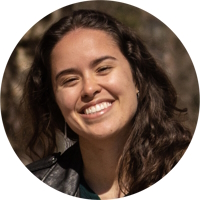
Alana Montanez, B.S.
Research Assistant
Alana has been working with the lab since spring 2022. She received her B.S. in neuroscience and psychology in 2021 from Johns Hopkins University, where she worked as an undergraduate research assistant for two years and studied the cognition behind writing processes. Alana is now investigating the effects of teamwork in a class setting on the social behavior of individuals with neurodevelopmental disorders. She has presented her work at the 2023 Annual Meeting of the Cognitive Neuroscience Society. In her free time, she enjoys learning new languages and playing her trumpet.
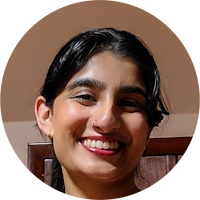
Alexis Phillips, B.S.
Research Assistant
Alexis has been working with the lab since Fall 2023. She received her B.S. in biology in 2022 from Rutgers University. She had worked there as a research assistant for two years, studying eye tracking in infants. Her main interest is in numerical cognition of individuals with neurodevelopmental disorders. Outside of the lab, Alexis enjoys reading and spending time with her friends.
Collaborating Faculty

Katie Davis, Psy.D.
Research Associate
Curriculum Vitae
Katie Davis is a research scientist with expertise in investigating strategies to enhance learning in children and young adults with autism spectrum disorder and related developmental disorders. She presents her work regularly at national conferences and publishes in peer-reviewed academic journals, including Developmental Science, Journal of Child Psychology and Psychiatry, and Annals of Family Medicine. In addition to her clinical work, Katie is a licensed clinical psychologist and expert in developing interventions to support individuals who experience academic and vocational difficulties.
IDAC Lab Alumni
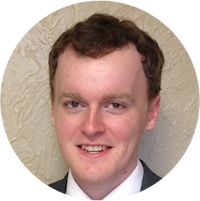
Ross Lawrence, M.Sc.
Sr. Programming Analyst
Ross Lawrence earned a B.Sc. in bioengineering from the University of Pittsburgh and a M.Sc. in biomedical engineering from Johns Hopkins University. His interests center around data science and medical image analysis, using both statistical and machine learning techniques. As part of the Division of Cognitive Neurology/Neuropsychology team, he assisted in the study of memory development in children through the collection of functional MRI data during memory activities as well as provided technological and analytical support for a physiological monitoring project. He is currently working as a machine learning engineer at DeepHealth, a company developing machine learning models to help radiologists detect cancers in mammograms, CT scans, and MRI scans.
Publications
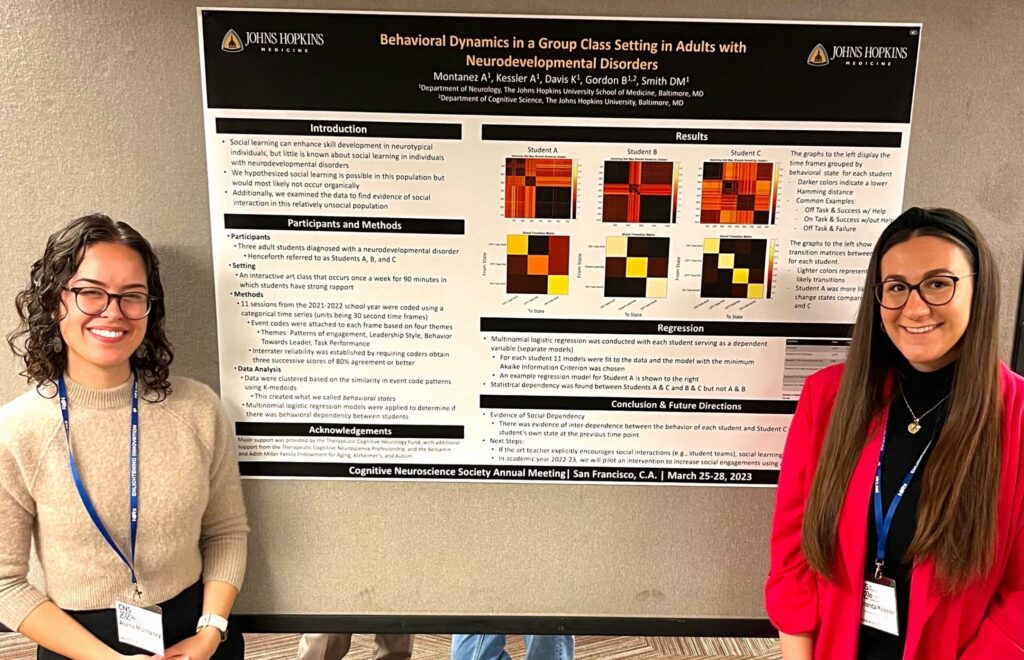
Xu N, Smith D M, Jeno G, Seeburger D T, Schumacher E H, & Keilholz S D.
The interaction between random and systematic visual stimulation and infraslow quasiperiodic spatiotemporal patterns of whole brain activity.
Imaging Neuroscience, in press.
Smith D M, Kraus B T, Dworetsky A, Gordon E M, & Gratton C.
Brain hubs defined in the group do not overlap with regions of high inter-individual variability.
NeuroImage, 2023, 277, 120195. Advance online publication.
DOI: https://doi.org/10.1016/j.neuroimage.2023.120195
Yu Y, Gratton C, & Smith D M.
From correlation to communication: Disentangling hidden factors from functional connectivity changes.
Network Neuroscience, 2023, 7(2), 411–430.
DOI: https://doi.org/10.1162/netn_a_00290
Godwin C A, Smith D M, & Schumacher E H.
Beyond mind wandering: Performance variability and neural activity during off-task thought and other attention lapses.
Consciousness and Cognition, 108, 103459.
DOI: https://doi.org/10.1016/j.concog.2022.103459
Smith D M, & Terhune D B.
Pedunculopontine-induced cortical decoupling as the neurophysiological locus of dissociation.
Psychological Review, 2023, 130(1), 183–210.
DOI: https://doi.org/10.1037/rev0000353
Ladwig Z, Seitzman B A, Dworetsky A, Yu Y, Adeyemo B, Smith D M, Petersen S E, & Gratton C.
BOLD cofluctuation ‘events’ are predicted from static functional connectivity. NeuroImage, 2022, 260, 119476.
DOI: https://doi.org/10.1016/j.neuroimage.2022.119476
Dykstra T, Smith D M, Schumacher E H, & Hazeltine E.
Measuring task structure with transitional response times: Task representations are more than task sets. Psychonomic Bulletin & Review, 2022, 29(5), 1812–1820.
DOI: https://doi.org/10.3758/s13423-021-02035-3
Smith D M, Perez D C, Porter A, Dworetsky A, & Gratton C.
Light through the fog: Using precision fMRI data to disentangle the neural substrates of cognitive control. Current Opinion in Behavioral Sciences, 2021, 40, 19–26.
DOI: https://doi.org/10.1016/j.cobeha.2020.12.004
Gratton C, Smith D M, & Dorn M.
Digging deeper to chart the landscape of human brain development. Neuron, 2020, 106(2), 209–211.
DOI: https://doi.org/10.1016/j.neuron.2020.03.030
Smith D M, Dykstra T, Hazeltine E, & Schumacher E H.
Task representation affects the boundaries of behavioral slowing following an error. Attention, Perception & Psychophysics, 2020, 82(5), 2315–2326.
DOI: https://doi.org/10.3758/s13414-020-01985-5
Bezdek M A, Godwin C A, Smith D M, Hazeltine E, & Schumacher E H.
Conscious and unconscious aspects of task representations affect dynamic behavior in complex situations. Psychology of Consciousness: Theory, Research, and Practice, 2019, 6(3), 225–241.
DOI: https://doi.org/10.1037/cns0000184
Hao Y, Yao L, Smith D M, Sorel E, Anderson A K, Schumacher E H, & Evans G W.
Prefrontal-posterior coupling mediates transitions between emotional states and influences executive functioning. Scientific Reports, 2019, 9(1), 8252.
DOI: https://doi.org/10.1038/s41598-019-44624-2
Smith D M, Zhao Y, Keilholz S D, & Schumacher E H.
Investigating the intersession reliability of dynamic brain-state properties. Brain Connectivity, 2018, 8(5), 255–267.
DOI: https://doi.org/10.1089/brain.2017.0571
Schumacher E H, Cookson S L, Smith D M, Nguyen T V N, Sultan Z, Reuben K E, & Hazeltine E.
Dual-task processing with identical stimulus and response sets: assessing the importance of task representation in dual-task interference. Frontiers in Psychology, 2018, 9, 1031.
DOI: https://doi.org/10.3389/fpsyg.2018.01031
